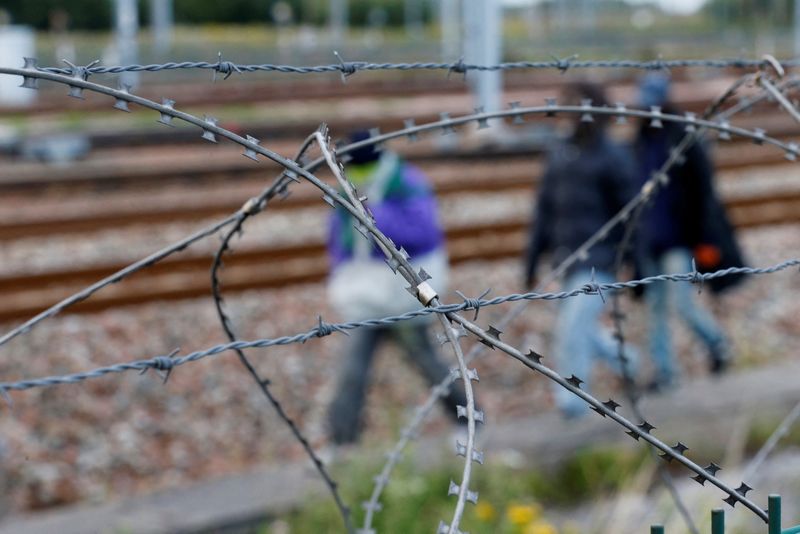PARIS (Reuters) -France's new government is open to toughening immigration laws, the interior minister said on Wednesday, under pressure from the far-right National Rally (RN) after the arrest of a Moroccan man suspected of murdering a 19-year-old woman in Paris.
Marine Le Pen's RN party, which holds major political sway over Prime Minister Michel Barnier's newly installed government, has jumped on the murder of the young student, identified by authorities only by her first name, Philippine, as vindication of its calls for tougher immigration and crime laws.
She had been reported missing by her family last Friday, and her body was found the following day, in the Bois de Boulogne park, the Paris prosecutor's office said.
The suspect, a 22-year-old Moroccan man who had previously been convicted of rape in France and was due to be deported, was on Tuesday arrested in Geneva, from where French authorities would seek his extradition, the Paris prosecutor's office said.
Under pressure from the RN, Interior Minister Bruno Retailleau said on Wednesday that he would look into changing the law to prevent such a situation from happening again.
"Faced with such a tragedy, preceded by many others, we cannot just condemn it or be outraged," Retailleau, a long-time immigration hawk, said in a statement. "It's up to us, public officials, to ... update our legislation, to protect the French."
Retailleau, from the conservative Republicans party, had already signalled earlier this week that France was likely to see much tougher immigration and security measures, reflecting a what he said was a growing rightward shift across Europe.
RN WIELDS NEW INFLUENCE AFTER SUMMER ELECTION
The Philippine case has underlined the power that the RN wields over Barnier's government, particularly in areas such as immigration and crime. The RN, a kingmaker after this summer's legislative election, gave tentative support to Barnier's hard-won premiership. But it has reserved the right to withdraw its support if its concerns are not met.
RN party chief Jordan Bardella accused the state of being too soft on security and immigration in a Tuesday post on X.
"It's time for this government to act: our compatriots are angry and will not be content with just words," he wrote. "Philippine's life was stolen from her by a Moroccan migrant targeted by an OQTF (obligation to leave France deportation order)."
Greens lawmaker Sandrine Rousseau warned against the far right using the murder to "spread its racist hatred".
France deports more non-EU citizens than any other European Union nation, official Eurostat data shows. But it issues so many expulsion orders - two to five times more than Germany in each quarter over the past two years - that its ratio of enforced expulsion orders is low.

In the first quarter of 2024, France ordered the expulsion of 34,190 non-EU citizens, or nearly a third of all expulsions ordered across the EU, but only deported 4,205 people.
Bureaucracy, diplomatic rows and a reluctance by some countries to accept the return of people holding criminal convictions are amongst the reasons why far fewer expulsions than are ordered are actually enforced.